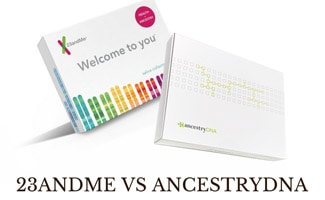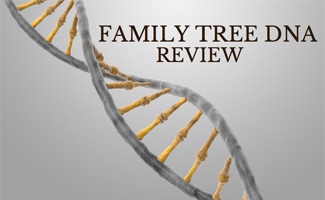How Accurate Are DNA Tests (Percentages)? Ancestry, Ethnicity, At-Home, Saliva & More Compared

DNA testing has proven itself as the most reliable form of biological evidence since 1985. Today it offers:
- Physical evidence at crime scenes, especially those involving any form of sexual assault
- Answers to paternity questions
- Answers to relationship questions
- Information on ancestry
- Medical pointers related to hereditary, weight, and health conditions
How Accurate Is DNA Testing For Ancestry?
Molecular biologists agree that DNA testing to identify paternity or close family relationships is almost 100 percent accurate. If the tests rely on outside sources of information or collective data from millions of people, such as you would find in ancestral DNA tests, then the results may be less definite. In these cases, further testing would be required to get to the 99.99% accuracy that DNA testing can provide.
Do My Parents Or Siblings Need To Take A DNA Test For My Results To Be Accurate?
It depends on what type of information you’re looking for. It’s not necessary if you just want general ethnicity results. An autosomal DNA test will tell you what’s been passed down through your mother and/or father’s blood line, so save yourself the money!
But keep in mind, each person inherits different percentages of each parent’s DNA, and every person is different (even twins!). So, if you want the most complete results, everyone in the family should test.
How Accurate Are DNA Ethnicity Tests?
DNA ethnicity results are the least reliable part of DNA tests, but the science behind this testing is improving. AncestryDNA and 23andMe have recently dramatically expanded the number of global regions they identify in your ethnic mix, but drilling down to specific countries is complicated and problematic. Why? There are two major reasons:
- Each company that offers ethnicity tests uses groups of reference populations to compare your results and place you in an ethnic group. Results, however, can vary widely based on which and how many of these reference populations a certain company uses.
- Over the course of hundreds and thousands of years, there has been a great deal of intermixing of populations, particularly in Europe. Let’s use warfare as a good example. Wars cause invasions, which in turn change country borders and cause the mixing of disparate populations. Refugees migrated to different parts of their continent, further mixing people of different ethnic regions.
Because of these factors, you can see why your ethnicity results are just estimates. The better testing companies, however, give you confidence levels for each of your ethnic percentage results, so you get a better idea of how “accurate” your results are.
How Accurate Is DNA Testing For Health Reasons?
The lines are a bit more blurry when it comes to DNA testing for disease risk (i.e., health).
The Centers for Disease Control and Prevention and other federal organizations want the public to be aware that many companies are prematurely marketing genetic tests for disease risk with limited scientific backing. Many of these tests may not provide valid or useful results. Why? Researchers have yet to identify a large part of the genetic makeup with most diseases.
23andMe, however, is one company that has received FDA approval for a few of its health-related DNA tests. You can discover your genetic disease risk for certain cancers, Parkinson’s Disease, Late-Onset Alzheimer’s Disease, Celiac Disease and other hereditary conditions. Learn more in our article about 23andMe and other DNA tests for health reasons.
Can A DNA Test Be Wrong?
We dive deeper into the conditions under which a DNA test might return an incorrect result or a false positive in our Can A DNA Test Be Wrong? analysis. We cover everything from contaminated DNA samples and lab errors to faulty tests and result manipulation.




